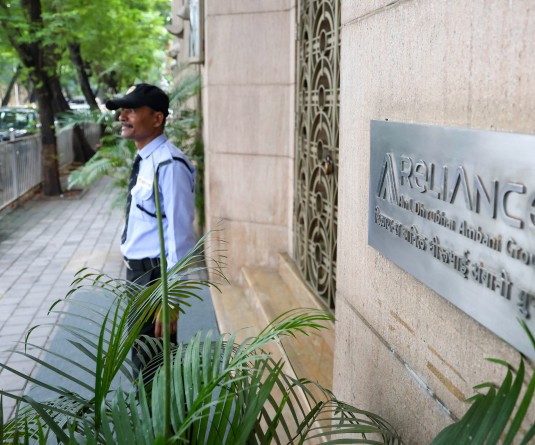Supreme Court. (IANS Photo)

New Delhi, August 25 (IANS): The Supreme Court has observed that there can be "no question of attributing vicarious liability to the office bearers" if it is alleged that a company has committed the offence of cheating or criminal breach of trust.
A bench, headed over by Justice J.B. Pardiwala, said that the office bearers could be arrayed as accused only if direct allegations are levelled against them.
"In other words, the complainant has to demonstrate that he has been cheated on account of criminal breach of trust or cheating or deception practised by the office bearers," added the Bench, also comprising Justice Manoj Misra.
Further, it said that vicarious liability of the office bearers would arise provided any provision exists on that behalf in the statute and not otherwise.
The apex court was considering a plea filed by the Secretary and the Honorary President of Delhi Race Club (1940) challenging the summoning order issued in February last year by the Additional Chief Judicial Magistrate, Khurja in Uttar Pradesh’s Bulandshahr.
According to the complainant, the Delhi Race Club used to purchase grains and oats from him but after 2017, he was not given any payment.
In his complaint filed for the offence punishable under Sections 406, 420, and 120B respectively of the IPC, he alleged that an amount of Rs 9,11,434 is due and payable towards the supply of the consignment.
The apex court, in its detailed judgment, said that the penal law does not contain any provision for attaching vicarious liability on the part of the appellants, who are none other than office bearers of the Delhi Race Club.
It went on to say that even if the entire case of the complainant is accepted as true, no offence worth the name is disclosed. "If it is the case of the complainant that a particular amount is due and payable to him, then he should have filed a civil suit for recovery of the amount against the appellants herein. But he could not have gone to the court of the Additional Chief Judicial Magistrate by filing a complaint of cheating and criminal breach of trust,” said the Supreme Court, as it set aside the summoning order.
“Summoning an accused in a criminal case is a serious matter. Criminal law cannot be set into motion as a matter of course. (T)he order of the Magistrate summoning the accused must reflect that he has applied his mind to the facts of the case and the law applicable thereto," reiterated the top court, adding that a magistrate is not bound to take cognizance of an offence merely because a complaint is filed before him.
Further, it said that issuance of summons should not be done mechanically and a magistrate has to apply his mind to form an opinion as to the existence of sufficient grounds for proceeding further.






